book review
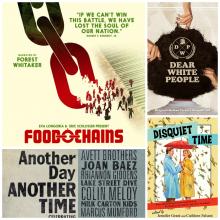
Truth and Satire
The witty film satire Dear White People is a comic entry point into a serious, much-needed conversation about race relations on college campuses. The storylines of four African-American students at a prestigious university spotlight a culture of racism that is easily and dangerously concealed by academia’s progressive posture. dearwhitepeoplemovie.com
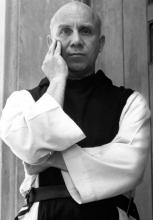
WHILE NOT HERE in person for the celebration of his 100 birthday on Jan. 31, Thomas Merton is certainly present in spirit through the extraordinary number of volumes about and even by him being issued to mark the anniversary—a splendid opportunity for readers to acquaint or reacquaint themselves with the monk often considered the most significant American Catholic writer of the past century.
Perhaps the best place to start is Messengers of Hope: Reflections in Honor of Thomas Merton, edited by Gray Henry and Jonathan Montaldo (Fons Vitae), a collection of more than 100 reflections by monks and activists, scholars, filmmakers, and poets, and Christian, Jewish, and Buddhist practitioners on the significance of Merton for their own lives. Some of the contributors are well known—Joan Chittister, John Dear, Jim Forest, James Martin, Richard Rohr, Huston Smith; others are well known in Merton circles; some are younger voices who one day may become well known but already have valuable insights as to how Merton continues to speak to the needs and hopes of the contemporary world. This is a rich compendium of personal stories that is a delight to dip into or to read straight through.
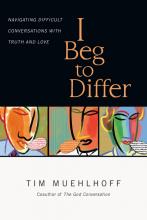
POLICE BRUTALITY, the Affordable Care Act, climate change: When people with differing convictions on issues such as these come together for conversation, some prefer to first set aside the issues and focus on building relationships, while others want disagreements front and center. In his book I Beg to Differ: Navigating Difficult Conversations With Truth and Love, Biola University communications professor Tim Muehlhoff says relationship and honesty are necessary for progress to be made.
“If every conversation we have with others is about the issues that divide us, the intensity will hurt the communication climate,” he writes.
For example, he offers the hypothetical story of an evangelical Christian who wants to share his faith with a Muslim co-worker. Over lunch, the colleagues take time to learn about each other’s differing religious convictions, but the conversation doesn’t invade their work relationship. Back at the office, they return to their easygoing, day-to-day relational habits.
It’s a mistake to begin conversations by trying to convince others of our position, Muehlhoff says. It is better to listen with a sincere desire to understand what the other person believes and why they believe it.

IN NOVEMBER 1964, as the long Cold War heated up again, this time in Vietnam, Trappist monk Thomas Merton set forth a koan to 14 peacemakers: “By what right do Christians protest?” For three days, these activists and theologians—famously uniting Catholic and Protestant faith traditions—met with Merton in the Kentucky hills, grappling with how and why Christians should resist the violence of war.
Historian Gordon Oyer has re-created this meeting so pivotal to the peace movement and—most important—assessed its meaning for our time. The historic retreat is meticulously sourced with detailed textual analysis of the presenters at the retreat and the writers who influenced them. Particularly impressive is the lucid summary of the era and the delicacy and respect with which the author treats cultural and doctrinal differences among the participants.
Ecumenism in peace work is thankfully common today, but in the early ’60s the blending of faith traditions at the retreat was groundbreaking. Even more revolutionary were the two Masses the group celebrated together, with Jesuit priest Dan Berrigan presiding, everyone in the group receiving communion, and John Howard Yoder, a Mennonite theologian, preaching at the second liturgy. (Both practices were proscribed at the time.)
Attendees included Phil Berrigan, later one of the creators of the Plowshares actions for nuclear disarmament, and A.J. Muste, dean of the U.S. peace movement at the time, with years of experience in War Resisters League, the Committee for Nonviolent Action, and the Fellowship of Reconciliation (FOR). FOR’s Paul Peachey and John Heidbrink were instrumental in initiating and organizing the retreat, although neither of them could attend in the end. (Neither could two other invitees—Bayard Rustin and Martin Luther King Jr.)
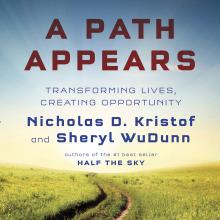
IT’S EASY to lose heart when tackling the painful challenges we live with—poverty, racism, violence, sex trafficking. We volunteer and donate our time and money, but do those efforts really make a difference?
Nicholas D. Kristof, a New York Times columnist, and Sheryl WuDunn, a former Times reporter who works in finance, had the same question; A Path Appears is the result of their investigation. The husband-and-wife team canvassed the giving world, interviewing socially minded people working as individuals or in community with nonprofits, corporations, for-profit organizations, and everything in between. Turns out millions of lives are being transformed next door and across the globe—including our own.
Bernard Glassman, for example, is an aeronautical engineer who wanted to do something about homelessness. After researching the issue for six months, he decided jobs were the most urgent need and started Greyston Bakery in Yonkers, N.Y., a for-profit company whose mission is to employ homeless men and women.
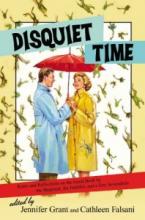
I was asked to contribute a chapter to a new book called Disquiet Time: Rants and Reflections on the Good Book by the Skeptical, the Faithful, and a Few Scoundrels. The volume, an edited compilation put together by Cathleen Falsani and Jennifer Grant, takes on many of the weird texts in scripture that we either gloss over or completely ignore because they’re just too … well, weird.
Of course there are plenty of spiritual oddballs to choose from, but as soon as I got the invite, I knew I wanted to write about the book of Revelation (note that there is not “S” at the end; there is no such book as Revelationsssssssss in the Bible). Suffice it to say that my relationship with the last book in the bible is a little bit complicated. In fact, it ruined my potential career as a lifetime Baptist. A number of you may have heard bits or pieces of the story about how I got kicked out of church as a teenager, but may not know all the details.
Well kids, you can blame it all on one freaky Bible book, one intransigent teenager and a floppy-Bible-wielding youth minister. But although the experience pushed me out of church for a solid decade, it didn’t forever ruin my search for the divine. But this particular story isn’t about that. It’s about how I got one particular youth minister so red-faced and flustered that he cussed me out and almost hit me square in the noggin with the Good Book.

I really did not like Michael Pollan's newest offering, Cooked: A Natural History of Transformation. Here are three reasons why:
1. The premise feels phony and staged.
Pollan has said that he is “more at home in the garden than the kitchen” (In Defense of Food), but this modesty about his cooking skills is less than convincing to those who read The Omnivore’s Dilemma, in which he prepared a highly local meal of wild pork cooked two ways, bread leavened with wild yeasts he captured himself, and a sour cherry galette with fruit from Pollan’s own trees.
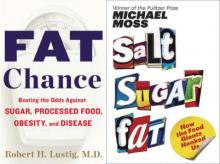
If you eat food, here are two newish books you should know about.
You may already have met Robert H. Lustig, author of Fat Chance: Beating the Odds Against Sugar, Processed Food, Obesity, and Disease (2012). Lustig is the UCSF professor whose surprisingly riveting 90-minute lecture, "Sugar: The Bitter Truth," has already had nearly 3.5 million hits on YouTube. The thesis of his lecture: it's not dietary fat that's making Americans gain weight, it's sugar. And sugar is doing much worse things than increasing our clothing size. It's setting us up for a whole range of lethal diseases that are almost entirely avoidable.
...
In Salt Sugar Fat: How the Food Giants Hooked Us (2013), Moss, a Pulitzer Prize-winning investigative reporter, tells what the food industry has been up to during the last couple of decades. Food executives, Moss says, are nervous: people are figuring out that convenience foods aren't good for them.
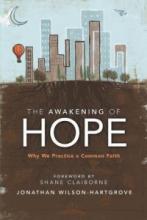
Jonathan Wilson-Hartgrove is a modern-day sage. A leader in the New Monastic movement, Hartgrove offers New Monastics and the church at-large profound lessons revealed through the practices of catechism — the spiritual disciplines of Christian faith.
Tempted by the powers of isolation, consumerism, pride, and violence this generation is drawn to the calls to community and simple living for reasons it hardly knows. Wilson-Hartgrove explains the “why."
Through the stories of well-established intentional Christian communities, Wilson-Hartgrove offers windows into the catechisms of the Christian faith. Communion and the Eucharist, fasting, integrity, community, non-violence, and public witness each serve as windows into much deeper philosophical and theological discussions.
[view:media=block_1]
LaVonne Neff reviews The Red House by Mark Haddon, Drift by Rachel Maddow, The Beginner's Goodbye by Anne Tyler, and Some Assembly Required: A Journal of My Son's First Son by Anne Lamott with Sam Lamott.